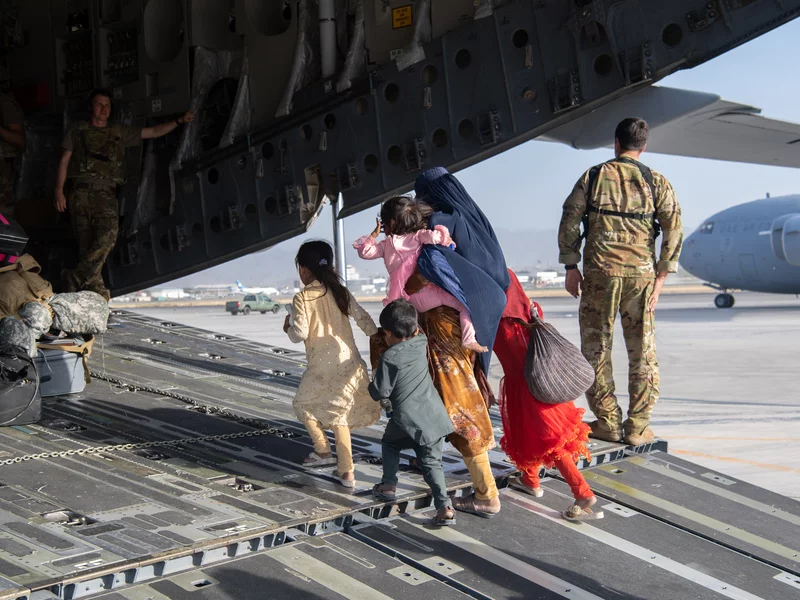Last spring, H.M., an Afghan refugee living in the U.S., visited Kabul to get married.
He spent a few blissful months with his new partner before returning to the U.S., where he is a legal resident. He immediately applied for a spousal visa for his pregnant wife. But in August 2021, the Taliban took over Afghanistan and the U.S. embassy shut down — and there was no one to process her visa.
(H.M. asked to be identified by his initials to protect his family, who are at high risk of persecution by the Taliban.)
His wife then applied for a special immigrant visa with the U.S. government. Because she worked for a USAID program in Kabul, she qualified for the visa, granted to those who’d worked with Americans on U.S.-sponsored projects. But she never received a case number due to bureaucratic delays.
The couple is still living apart. In December, H.M.’s wife gave birth to a daughter whom he has yet to meet – although he’s already making plans to give her tennis lessons.
H.M.’s story represents a category of Afghans who have been separated from their loved ones in the wake of the Taliban takeover — and aren’t sure if and when they can reunite. Deborah Alexander, a former U.S. diplomat in Afghanistan who is assisting H.M.’s wife and other Afghans with asylum and visa applications, estimates that thousands of families have been split apart.
The U.S. and its NATO partners promised to get Afghans whom they’d trained, armed and funded out of Kabul last summer along with their families. This includes Afghan soldiers , interpreters and advisers directly employed by the U.S. — and those who worked for U.S. and NATO-funded organizations and projects. Because of their affiliation with Western powers, these Afghans are in danger of persecution by the Taliban.
Read full story on NPR
